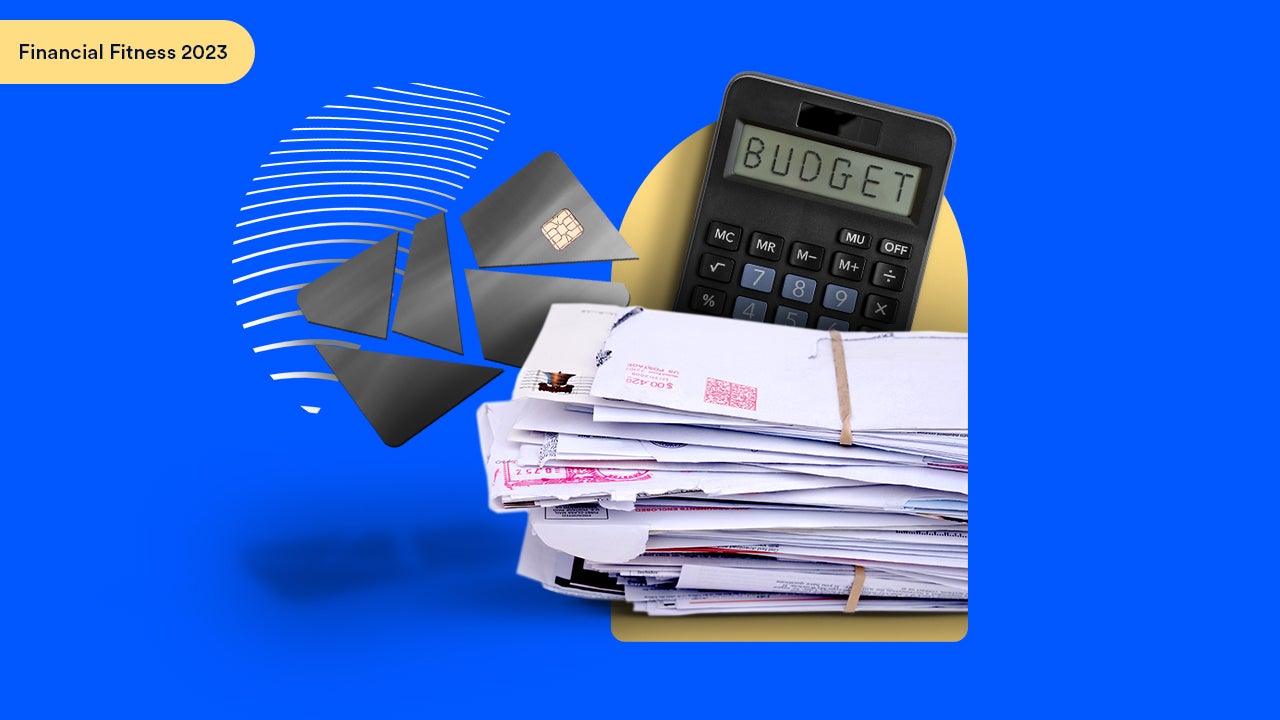How Gen Zers can use credit cards to plan a vacation




As summer starts rolling in, we start to feel the desire to go on vacation. The sun is out, holidays are coming up and we’re ready to take a break to recharge. Alas, the costs of that summer trip are rising fast. According to a recent Bankrate survey, 7 out of 10 U.S. adults are changing their summer vacation plans accordingly—taking fewer trips, staying local and picking cheaper destinations.
Still, many adults plan to take at least one trip during the summer season, including 75 percent of Gen Z. As Gen Zers start exploring their financial independence, here are a few tips to help minimize the cost of that next vacation.
Tip #1: Be open-minded and flexible
You can’t control the economy, especially if it’s drifting out of your favor with recent inflation and rising federal interest rates. But you can control how you approach your vacation mindset. Start thinking outside the box. If a beach vacation is too expensive, perhaps visit a lake this year. If air fares are too high, indulge in a road trip. Take a small group of friends to a rental property instead of a hotel. There are many ways to vacation, and this could be a good time to explore other options.
Best card for flexible plans: Flat-rate cash back
Flat-rate cash back cards are great if you want to change plans on a dime. The rewards will always come through, whether you take a flight, go to gas stations or pay for accommodations. You can also use these rewards after the trip to cover some of the expenses on your card, alleviating the pressure on your balance.
Suggested cards:
- Capital One Quicksilver Cash Rewards Credit Card: Unlimited 1.5 percent cash back on everything with travel protections
- Upgrade Cash Rewards Visa®: 1.5 percent cash back on all purchases with a chance at a low APR
- Bank of America® Travel Rewards credit card: 1.5 percent per $1 spent with no annual fee or foreign transaction fee
Tip #2: Check out card programs
While people are aware that credit cards come with travel perks, many are unaware of the variety of travel benefits that you can receive, even if you don’t carry a premium card. From insurance on baggage and car rentals to annual free nights, there’s a lot to look forward to.
Best card for travel plans: Travel rewards cards
Travel cards are always going to boost your home-away-from-home comfort. These cards often have higher rewards rates on flights, rentals and hotels and other benefits for you to enjoy year after year.
Keep your own travel preferences in mind when deciding which card to pick. If you tend to be most comfortable with a road trip, look for cards that offer rewards for gas and grocery store purchases. If you find yourself in an airport multiple times a year, a card that gives lounge access can be a great investment.
Suggested Cards:
- Capital One VentureOne Rewards Credit Card: 5X miles on hotels and rental cars booked through Capital One Travel with zero annual fee
- Hilton Honors American Express Card: Earn 7X points for each dollar of eligible purchases charged directly with hotels and resorts within the Hilton portfolio and a generous welcome offer
- Delta SkyMiles® Gold American Express Card: 2X miles on Delta purchases and restaurants worldwide and $0 intro annual fee first year, then $99
Tip #3: Plan around new requirements
COVID-19 changed everything, especially the travel landscape. Depending on where you’re traveling, there’s a chance you’ll face higher prices, safety mandates or even mandatory testing before arriving. Make sure to research your destination’s health guidelines before booking and, if there’s a window for refunds, recheck before your trip to stay prepared.
Best card for new requirements: Premium cards
No one can prepare for everything. If you find yourself facing unexpected expenses, premium cards often have higher spending limits and 0 intro APR offers that can help you keep your debt down. You can also get benefits like credits for Global Entry or TSA PreCheck, early boarding and travel insurance. With perks like this, traveling quickly becomes less of a hassle and more of an adventure.
Suggested card:
- Chase Sapphire Reserve®: 5X points on air travel through Chase Ultimate Rewards with $300 annual travel credit
- Capital One Venture X Rewards Credit Card: Unlimited 10X miles hotels and rental cars through Capital One Travel and up to $100 credit for Global Entry or TSA PreCheck
- The Platinum Card® from American Express: Earn 5X Membership Rewards® Points for flights booked directly with airlines or with American Express Travel up to $500,000 on these purchases per calendar year.
Tip #4: Take advantage of relaxed summer holidays
The best part about summer is that it includes the low-stake holidays. While popular, Memorial Day and 4th of July do not hold the same urgency as perhaps Christmas or Thanksgiving. Therefore, planning trips before or after those days is less of a hassle.
Best card for this: Rotating categories
Often rotating categories cards change throughout the year to 5 percent cash back in select categories consumers will most likely spend in during the season. If you’re trying to look ahead, you can check categories from the previous year to get an idea of what will become available in the upcoming seasons.
You see a boost in cash back in categories like travel, transit, gas stations, restaurants and live entertainment, an easy way to make your next trip worthwhile. Just be aware you may have to activate the categories each quarter.
Suggested cards:
- Discover it® Cash Back: 5 percent cash back after activation on rotating categories each quarter (up to $1,500 in purchases, then 1 percent), 1 percent for all other purchases
- Chase Freedom Flex℠: 5 percent cash back (up to $1,500 in purchases then 1 percent) on grocery stores, streaming services and online purchases with travel insurance benefits
- Citi Custom Cash℠ Card: 5 percent cash back on activated bonus category purchases each quarter (up to $1,500 in purchases, then 1 percent) and on Chase Ultimate Rewards travel purchases
Knowing when to travel and when to stay home
You may be craving a change of scenery but that doesn’t necessarily mean now is the time to go. When calculating your decision, consider all the pros and cons in order to make a decision that aligns with both your budget and personal well-being.
Go, because…
- It’s a good opportunity to spend the points you earned. If you’ve been saving rewards points all year and are looking for a way to use them, a vacation is a great option. Not only is it an effective way to cut back on costs, but it can also allow an opportunity to splurge on card perks like hotel or flight upgrades.
- It’s a great way to earn cash back. Often travel categories get higher rewards with credit cards, especially if the issuer has its own travel portal like Chase or Capital One. This is an opportunity to earn a percent or two more on cash back while having fun.
- You may need a break. While vacations often look like a luxury, taking time for yourself is a necessity. Burnout doesn’t happen overnight, and breaks are vital to balancing life. Even if it’s a staycation, finding time for yourself outside of your normal schedule will be beneficial overall.
Don’t go, because…
- It’s still expensive. Sometimes, our budgets don’t have room for time away. It may be better to plan a trip for 6 months out or longer if your debt is high or you’re planning to make a large purchase soon. In the long run, it’ll save you stress while giving you something to look forward to.
- It’s easy to overspend. If you tend to spend a lot more on vacation than usual, going on a vacation could be taxing on your budget when you come back. If you carry a balance on your card afterward, you will incur interest on your card, which has recently risen.
The bottom line
Traveling today can easily be overwhelming, but your credit card can be more helpful than you think. If you’re getting a new card, look at the travel perks that will be beneficial to you. If you have a card, check for points and cash back opportunities on flights, gas and more.
Either way, there are plenty of opportunities for you to explore the world around you, whether local or international. Vacations are meant to be a time to unwind and, with some research, you can have your best one yet. Just like anything in personal finance, find what makes the most sense for you and go from there.
Why we ask for feedback Your feedback helps us improve our content and services. It takes less than a minute to complete.
Your responses are anonymous and will only be used for improving our website.




